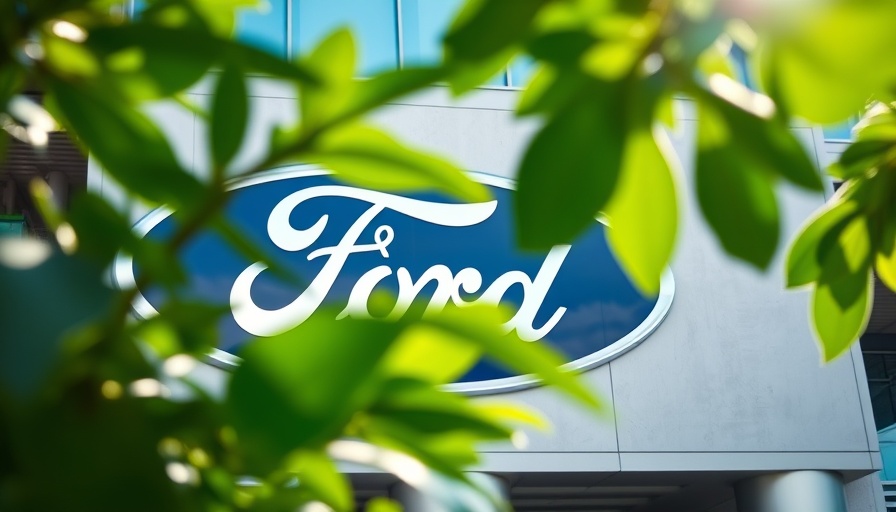
COVID-19's Lingering Impact on Used Vehicle Supply
The COVID-19 pandemic has left a profound mark on the global automotive supply chain, driving significant disruptions. While immediate issues like factory shutdowns and raw material shortages were apparent, a more subtle but equally impactful consequence has emerged: a lasting void in the supply of used vehicles. As we delve deeper, it becomes clear that this void is not simply a fleeting annoyance but a cornerstone of ongoing operational challenges facing dealerships today.
Emerging Trends: The Gap in Used Vehicle Availability
Rentals and lease cycles have been particularly affected, leading to a significant depletion in the inventory of high-quality used cars. Traditionally, rental companies operate on a predictable cycle, acquiring new vehicles and auctioning off older ones. However, the pandemic caused a dramatic halt in acquisitions during 2020 and 2021. Fast forward to today, and dealerships are confronted with a stark reality: the vehicles that should have entered the used market simply do not exist. With this shortage, prices for used cars have skyrocketed, sparking fierce competition among dealers to not only acquire stock but also to remain profitable.
Rental and Lease Markets: A Broken System
The reliance on ex-rental vehicles has been disrupted, creating a gap that compounds the struggle. Rental agencies, which usually buy large volumes of vehicles, paused purchases entirely as consumer demand plunged during the pandemic. This has led to a scarcity of low-mileage, well-maintained vehicles that once fed the used car market. Additionally, the decline in new lease agreements, aggravated by consumer uncertainty during the pandemic, has exacerbated the situation, causing a backup in inventory that dealers are compelled to manage without the typical flow of lease returns.
The Ripple Effect of the Supply Chain Void
The void in the used vehicle market is not merely an anomaly; it has created widespread repercussions. For instance, the rise in competition for limited vehicle stock has elevated prices substantially. Between 2020 and 2021, the average used car price surged 34%, a trend that shows no signs of reversal as inventory remains low. As dealerships scramble to maintain their stock, many are resorting to private sellers, trade-ins, and alternative sources, often at inflated costs that can affect financing scenarios for consumers. In this context, understanding the nuances of used car financing and current interest rates becomes crucial for both dealers and potential buyers.
Strategies for Navigating the Current Market
In light of these challenges, dealerships are re-evaluating their sourcing strategies, pricing models, and partnerships. By expanding sourcing channels beyond traditional databases and enhancing refurbishing efforts for existing inventory, dealerships can maintain competitiveness in this strained market. Meanwhile, understanding the best strategies for finance rates, such as securing low interest rates on used car loans, will empower customers and elevate their purchasing capabilities during these tumultuous times. Tools such as used car loan calculators may provide valuable insights into available financing options, guiding financial decisions.
Looking Ahead: What Comes Next?
As the recovery principles continue to evolve, it’s crucial for dealerships to acknowledge not only the immediate impact but also the long-term implications of the supply chain void initiated by the pandemic. The automotive landscape is shifting, and those that adapt to these new conditions will find opportunities for growth and resilience. While the automakers race to address chip shortages and production delays, understanding how to overcome the challenges posed by reduced used car inventory will remain pivotal. The rising competition and altered consumer behaviors post-pandemic necessitate a fresh outlook on market strategies and financing nuances.
In essence, as the automotive industry grapples with the ongoing consequences of COVID-19, a deeper understanding of the complexities of used vehicle supply and financing options will be essential for both dealerships and consumers preparing for future transactions. To thrive, staying informed about current financing rates and understanding the changing landscape of auto loans is crucial.
Dealerships must remain proactive, reviewing their strategies to secure inventory and offering competitive financing solutions while enriching customer engagement. The landscape may have changed, but with the right strategies in place, dealerships can navigate these turbulent waters effectively.
 Add Row
Add Row  Add
Add 




Write A Comment